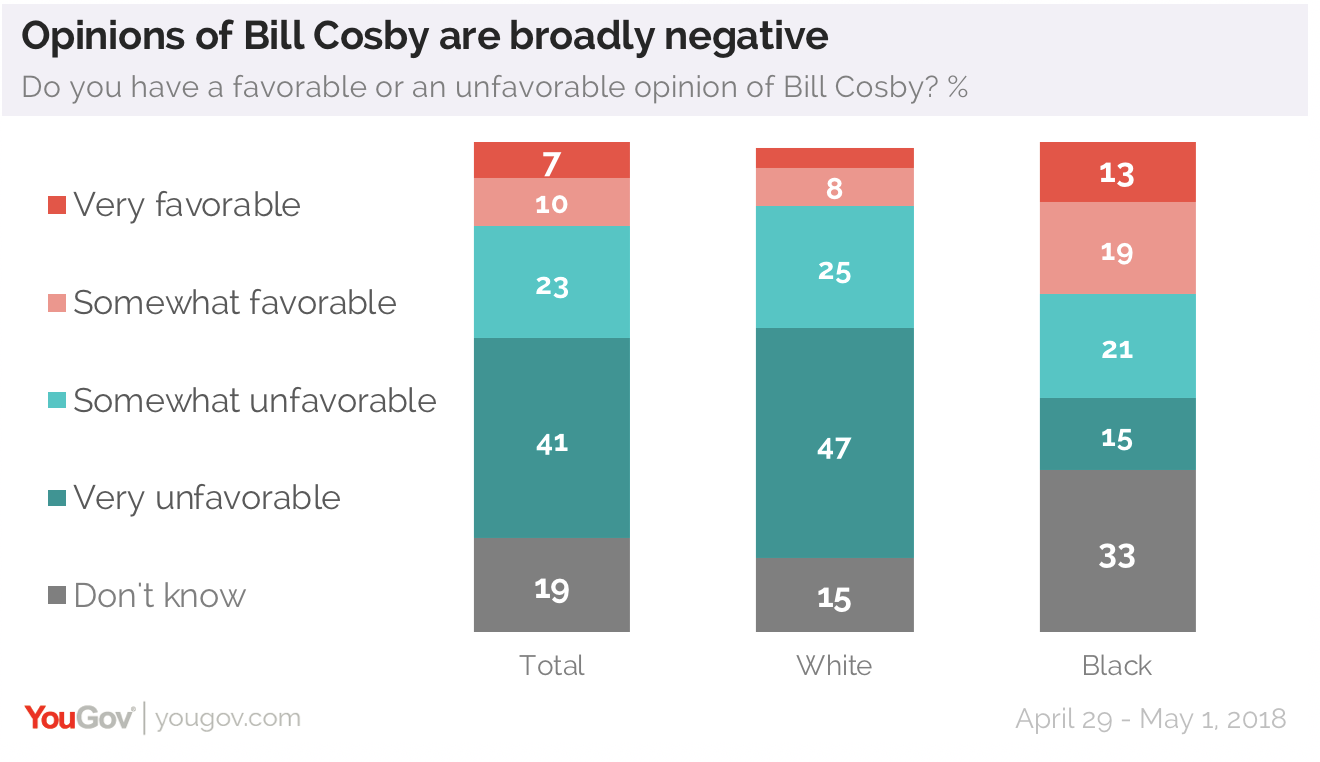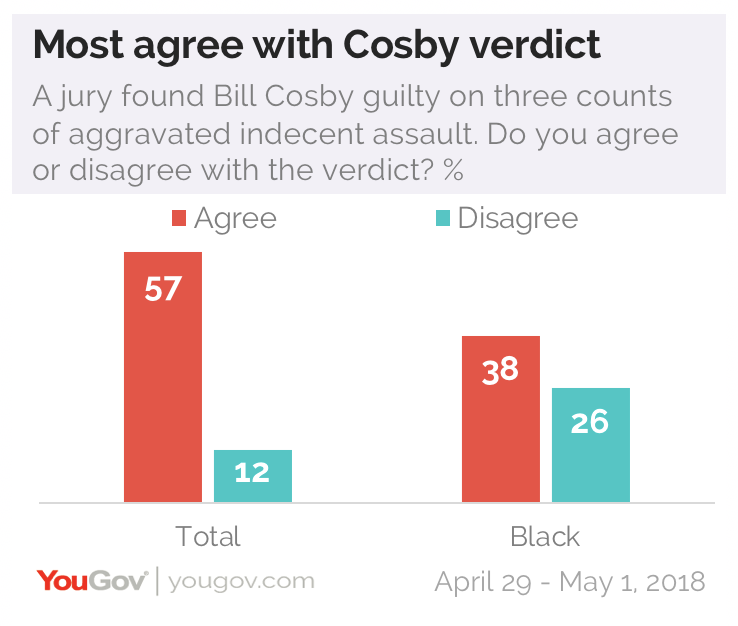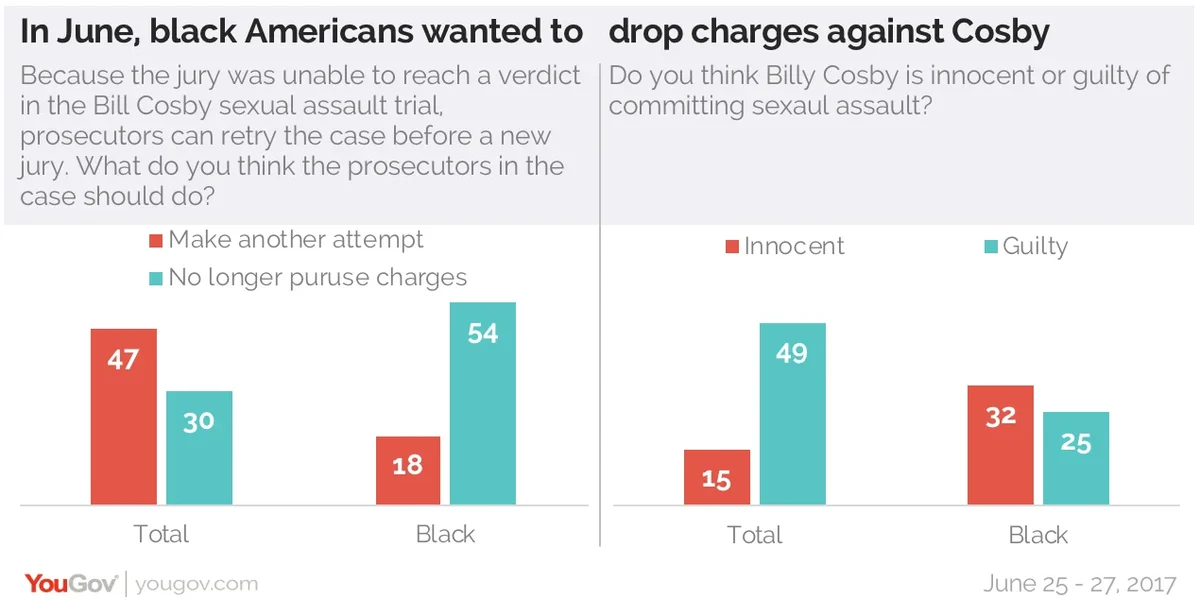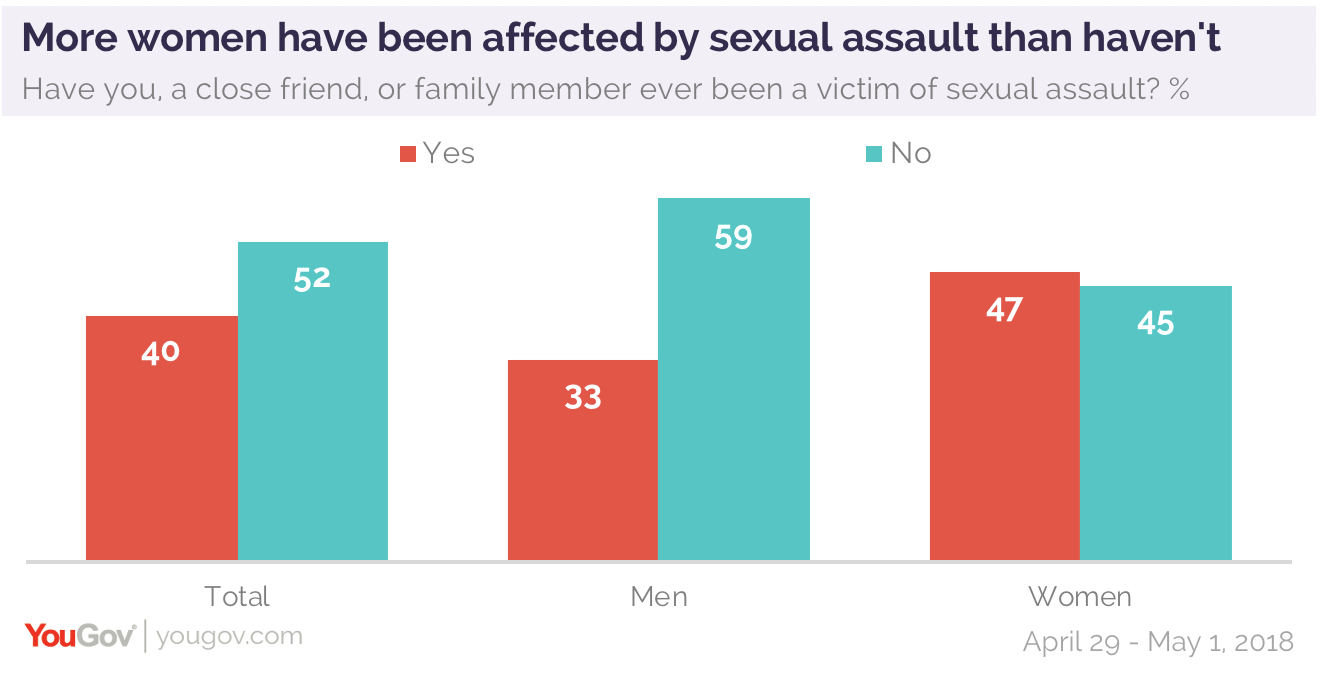57% of Americans agree with the verdict that found Cosby guilty of three counts of aggravated indecent assault
Bill Cosby was once admired. A Gallup/CNN/USA Today poll in January 1997 found that 90% of Americans held a favorable view of him. Hardly any – just 4% – were unfavorable. More than a decade later, a CNN/ORC Poll in December 2014 found Cosby’s favorable rating cut in half, to just 45%, with 38% unfavorable. In this week’s Economist/YouGov Poll, conducted after the 80-year old entertainer’s conviction on three counts of sexual assault, opinion of Cosby has plummeted once again, this time by nearly two-thirds.

Two in three Americans are now unfavorable about Cosby. Although the percentage among African-Americans is nea rly twice that of the general public, even more are unfavorable and as many aren’t sure what to think about Cosby now.
rly twice that of the general public, even more are unfavorable and as many aren’t sure what to think about Cosby now.
The guilty verdict on three counts is a conclusion most in the public can support. By more than four to one, Americans agree with the guilty verdict. African-Americans agree as well, though by a smaller margin. This is quite different from the result of the Economist/YouGov Poll conducted after last year’s mistrial on the same charges. A year ago, most African-Americans did not want to see a second trial for Cosby, and narrowly felt he was innocent.

Americans, black and white, prioritize the rights of victims over the rights of the accused. Six in ten believe it is more important to protect the rights of the victim, while 15% say protecting the rights of the accused matters more. At the same time (and by a similar margin), more say it is worse to convict an innocent person than to let someone guilty go free.
For many people, the crimes that Cosby was convicted of hit close to home – 40% say they or a a close friend or family member who has been a victim of sexual assault. That knowledge crosses party lines, but the percentage is particularly high among women, nearly half of whom say they, a close friend, or a family member has been victimized in this way.

There may be more people who don’t know a friend or family member has been a victim of sexual assault. By more than three to one, Americans believe the number of people who are reluctant to report sexual assaults or rape is larger than the number of those who are falsely accused of assault.
Read more toplines and tables results here
Photo: Getty







